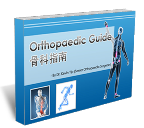- Ankle Pain
- Knee Pain
- Elbow Pain
- Neck Pain
- Heel Pain
- Lower Back Pain
- Fracture Pain
- Shoulder Pain
- Shoulder Dislocation
- Shoulder Instability

Join Our Mailing List to get Orthopaedic Guide eBook!
Call +65 64712698
for appointment

Specialist In Orthopaedic Surgery & MBBS(UK), FRCS(EDIN), FAM(SING), FHKCOS(ORTHO)
Knee Pain
What is Knee Pain?
Knee pain is a common complaint among different groups of individuals. It is a result of an injury to the structures surrounding the knee, such as torn cartilage or ruptured ligament. Arthritis, gout, and infections also can cause knee pain. Excessive running, repetitive jumping, kneeling frequently and leg extension exercises are some of the predisposing factors of knee pain.
The Symptoms
People with knee pains usually complain of severe tenderness when they stand, sit, walk, and flex their knees. Since the knee joint is designed for active weight-bearing activities, it is mostly prone to injuries. Pain felt at rest is manifested in ligament injury. Together with pain, swollen and warm knee are also apparent. Severity of injury usually varies from mild (minor stretching) to severe (complete stretching) of the ligaments.
Some Common Problems
Anterior Cruciate Ligament Tear
Possible Causes
A lot of factors are considered in knee pains. Injuries affecting the ligaments, bursa, or tendons surrounding the knee joint are major contributors. Pain caused by trauma on the inner or outer portion of the knee, or within the knee is usually difficult to localize. A collateral ligament injury is often associated with local tenderness and is felt on either the inner or outer portions of the knee. A cruciate ligament injury, on the other hand, is usually felt profoundly within the knee. A “popping” sensation usually is described by the client in this case. Not only ligament injuries promote knee pain. Tendinitis or inflammation of tendons also promotes severe pain. Usually, patellar tendinitis is caused by a strain event such as jumping, thus called the “jumper’s knee”.
Treatment Provided
Am I at Risk?
Young people are mostly at risk for developing knee pains. Teenage girls can be more prone than boys to experience dislocated kneecap. Being overweight or obese can make your knee more susceptible to injuries because of the weight and pressure put to it. Leg misalignments can also predispose the patient for knee pains, as well as lack of muscle flexibility or strength. Moreover, sports such as skiing can possibly bring about knee injuries and knee pain.
Injuries of the ligaments are initially treated with rest, immobilization, cold packs, and elevation (RICE). Bearing weight over the injured area should be avoided. Patients may use crutches when walking. Braces and splints can also be used to immobilize the injured part. This would in turn promote healing and decrease pain. In severe cases, a knee surgery to repair the injury may be necessary.
For more information or to book and appointment with the Singapore Orthopaedic Clinic, you can call (+65) 6471 2698. Our hotline is open 24 hours a day. You may also send us an enquiry for appointment.
